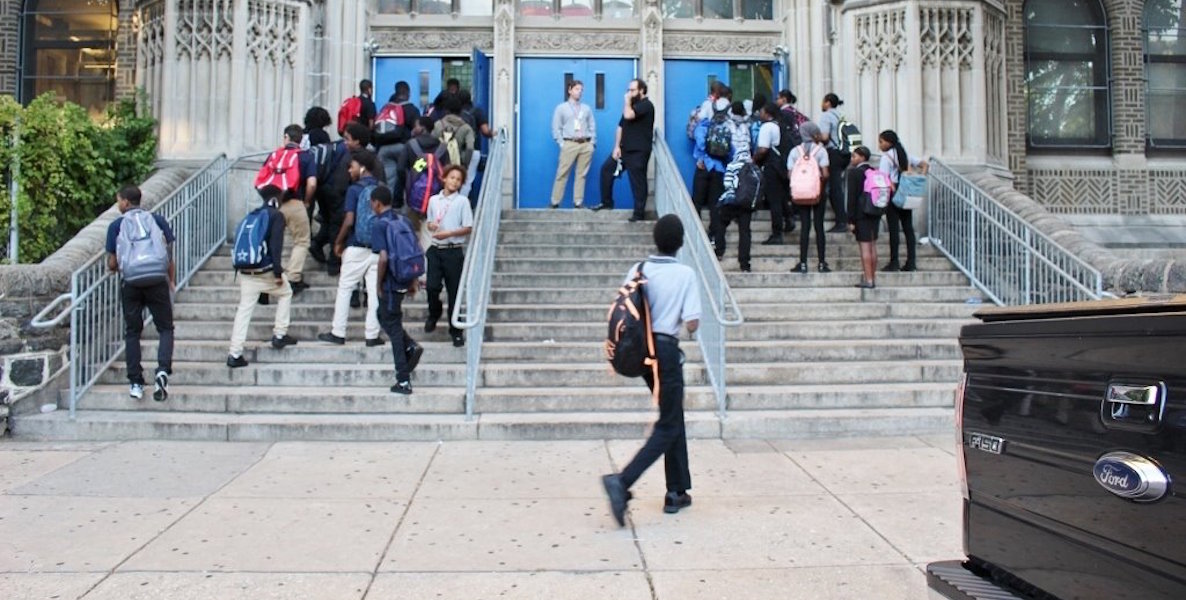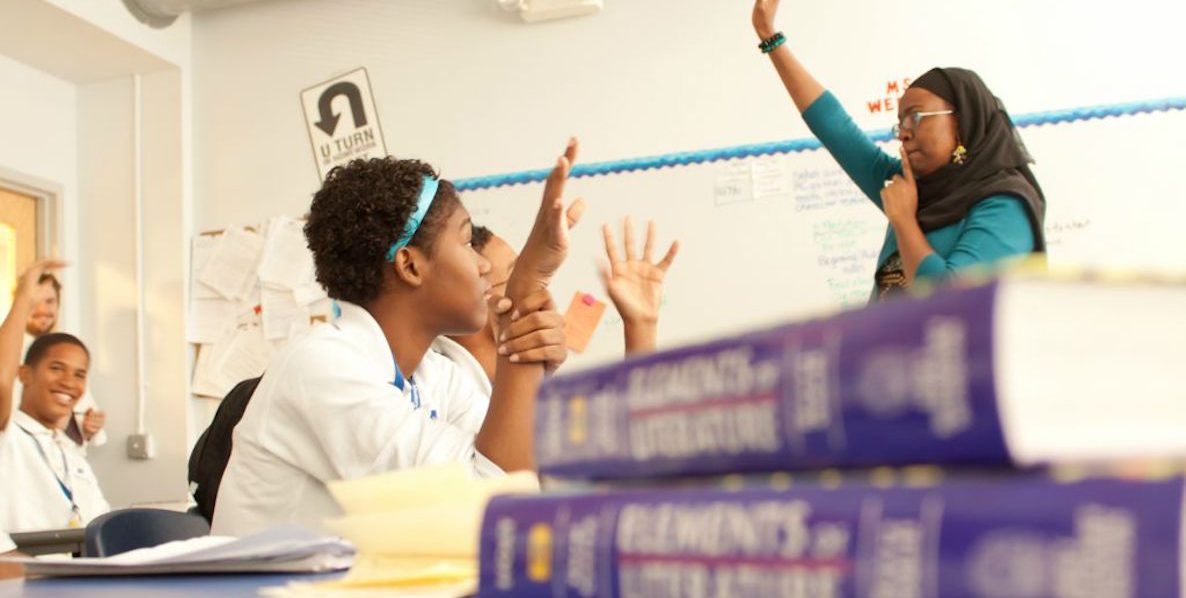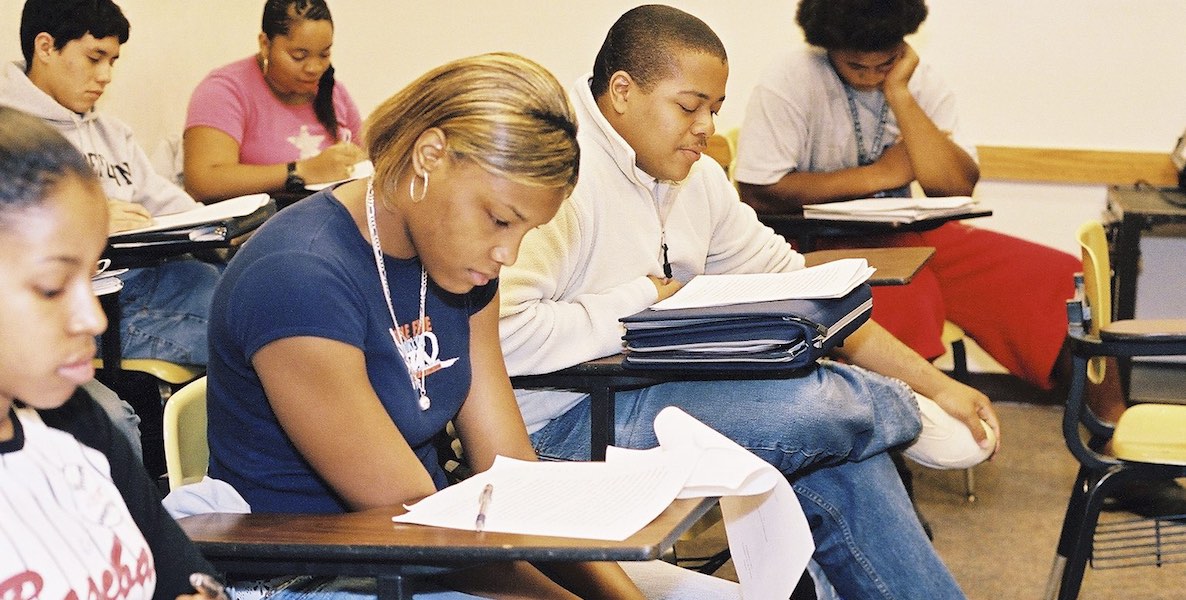“We are serving notice that no longer will the plantation system of … appointing our leaders exist … ”
This is a quote from Cecil B. Moore, former president of the Philly chapter of the NAACP. Cecil B. Moore is likely one of the last unbought and unbossed leaders of this previously civil rights-focused organization. Today’s version of the NAACP isn’t woke. It’s more woozy than anything. The leaders of the NAACP have lost their way and are stumbling, bumbling caricatures of their former selves.
Questions the NAACP should have answered before this weekend, when they demanded a moratorium on charter schools and school choice for families include:
- Why do so many low-income Black and Latino families feel the need to choose charters over traditional schools?
- Where is the moratorium on unfair funding practices that create inequities in our communities in need?
- Where is the moratorium on the inherent inequities created by criteria-based public schools and magnet programs that cream from the top (as charters are routinely accused of)?
- Where is the moratorium on unfair union contracts that make it almost impossible to exit consistently under-performing teachers?
If a moratorium on school choice for Black and Latino families will address the questions above, then we should talk. If not, it is a distraction from delivering on what families in charters and on charter wait lists are asking for.
Just like traditional district schools, charters have much room to grow. But the call for a moratorium reeks of the type of privilege associated with Black flight post Brown vs. the Board of Education. Those who choose to stay in the neighborhoods of their families deserve to also have great school choices in the communities where they live.
Let’s all agree that there needs to be a moratorium on persistently failing and underperforming schools. In places where the traditional district schools have not presented quality options, to suggest that parents do not deserve a choice is nothing short of oppressive.
I confess, I have never been a huge fan of the NAACP. I just always had my suspicions. I am not saying they haven’t done great work, but it was always hard for me to engage with an organization with roots fertilized in a “talented-tenth” focus.
Just like traditional district schools, charters have much room to grow. But the call for a moratorium reeks of the type of privilege associated with Black flight post Brown vs. the Board of Education. Those who choose to stay in the neighborhoods of their families deserve to also have great school choices in the communities where they live.
As a child of the 70s, I was less interested in the talented tenth, a frequently self-absorbed and misguided group that would look down on poor Blacks. I wanted to be engaged in exerting force on the best levers for change. For many in the Black community, that means school choice, which often means charter schools.
Last year, I had the opportunity to attend a summit jointly sponsored by the NAACP and the U.S. Chamber of Commerce. While I was there, I was chided by an NAACP representative for being a charter school principal and for not being a member of the NAACP. I got the feeling that she was mostly annoyed that I wasn’t a dues-paying member. When I asked her what Pennsylvania’s graduation rate was, she couldn’t answer. When I asked her if she knew that the average 17-year-old Black boy read at the same level of a 13-year-old White boy, she was surprised. When I told her we had hundreds of kids on our waitlists, she asked why.
When representatives of a “civil rights organization” don’t have a clue about the current state of affairs of millions of Black students, we have a colossal problem.
Like the representative I interacted with, the national office doesn’t have the foggiest idea about the day-to-day struggles of families seeking educational justice and human rights. The NAACP is far removed from the realities of the typical Black student.
![]() Last year, as our students and families were rallying for our charter to be renewed, our local NAACP dropped this gem: “They are nothing but a consultant group for private industry who wants to take over our children and put them back on the auction block.”
Last year, as our students and families were rallying for our charter to be renewed, our local NAACP dropped this gem: “They are nothing but a consultant group for private industry who wants to take over our children and put them back on the auction block.”
Yes. He likened our public school and the school choice of thousands of families over the past 10 years to an auction block. While the national office and many state affiliations perch on far-removed ivory towers pontificating about the needs of the students, I can’t help but to question their leadership, relevance, and “wokeness” they possess.
This recent demand for a moratorium on charter schools has a familiar ring of dismissiveness towards the plight of the other 90 percent of Black America. Shameful.
What they should be demanding is a moratorium for failing schools in every zip code. That is what would be a worthy cause of a civil rights organization. This most recent resolution was purchased by national teacher unions and sells out Black families.
What they should be demanding is a moratorium for failing schools in every zip code. That is what would be a worthy cause of a civil rights organization.
But this was no surprise for us in Pennsylvania. Our NAACP chapter has long sided with unions over children. Limiting school choice for the most oppressed communities is their version of civil rights. In the NAACP leadership’s eyes, their union alliance trumps school choice for families.
While the anti-charter squad uses Success Academy as their favorite whipping boy, Black and Latino families know that there are a variety of different charter school models—especially neighborhood charters that serve their children’s needs on a daily basis. To lump all charters into one sector is disingenuous and deceitful.
When polled, 70 percent of Black families are demanding school choice. They know school choice should not be reserved for the privileged—that does not serve most Black folks’ interest. As I come across more and more anti-school choice proponents, I discover that they actually believe in school choice. They just believe in school choice for their own kids—not others.
![]() If you were confused before, now you know with certainty that the NAACP isn’t interested in serving poor Black families. It is clear that by asking for a moratorium on charters, the NAACP is not serving the interests of the Black community.
If you were confused before, now you know with certainty that the NAACP isn’t interested in serving poor Black families. It is clear that by asking for a moratorium on charters, the NAACP is not serving the interests of the Black community.
Whose interests are they serving?
Sharif El-Mekki is the principal of Mastery Charter School–Shoemaker Campus, a neighborhood public charter school in Philadelphia that serves 750 students in grades 7-12. El-Mekki will be contributing regular columns from the school front lines this year.
A version of this post originally appeared on Philly’s 7th Ward.
Header photo by Owen Byrne via Flickr






